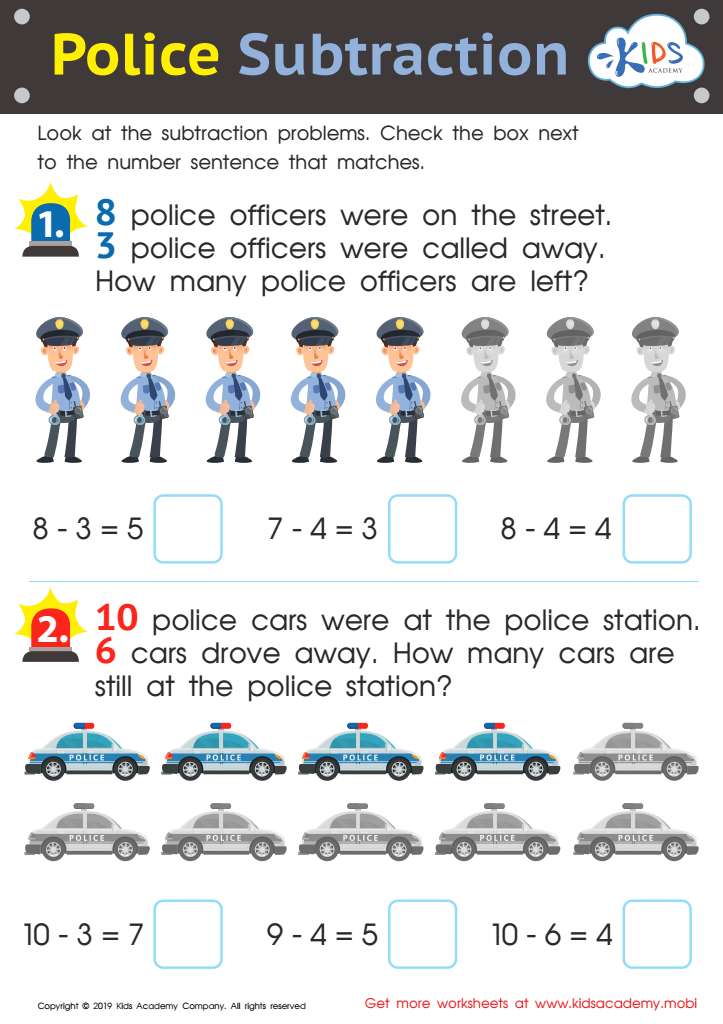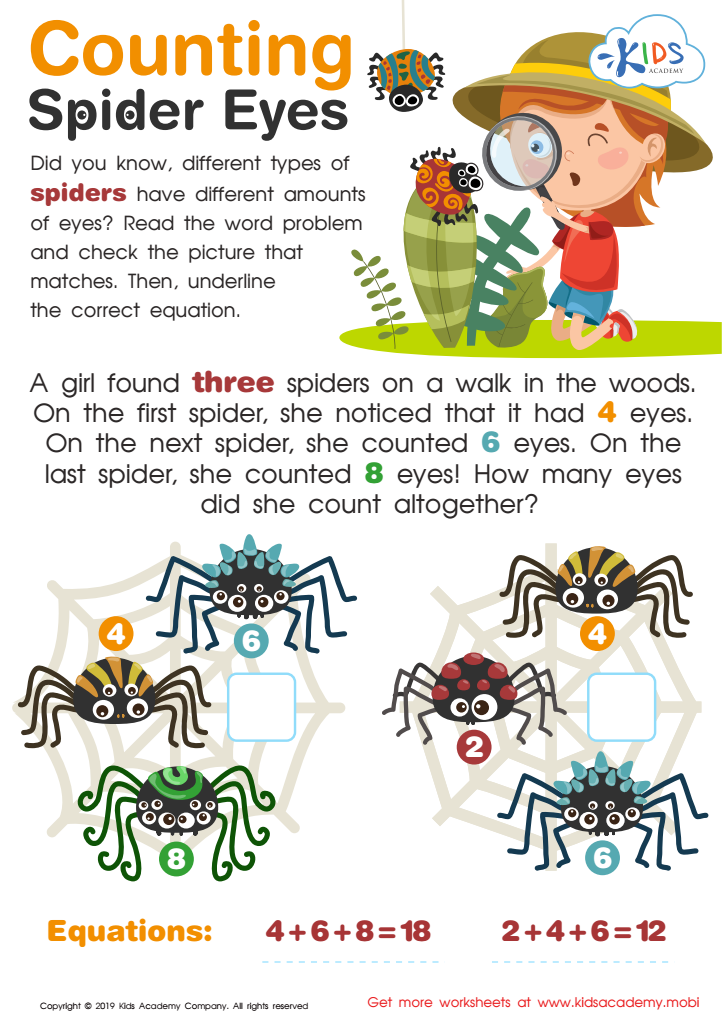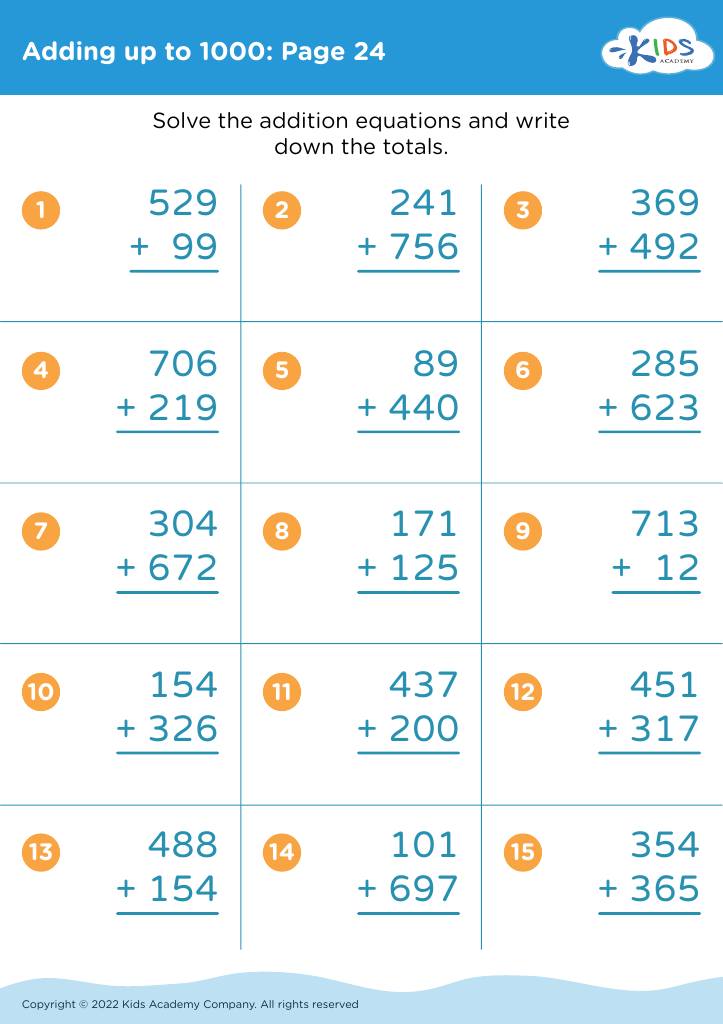Hand-eye Coordination Addition & Subtraction Worksheets for Ages 8-9
10 filtered results
-
From - To
Enhance your child's math skills while improving their hand-eye coordination with our engaging Addition & Subtraction worksheets designed for ages 8-9! Our specially crafted activities help students practice essential math concepts through fun, interactive tasks that require fine motor skills. Each worksheet combines arithmetic exercises with captivating visuals, making learning enjoyable and effective. Your child will develop a better grasp of numbers and calculations while boosting their dexterity and focus. Perfect for at-home practice or classroom use, these worksheets are an excellent way to support your child's academic growth. Download now to start their learning adventure today!


Police Subtraction Worksheet


Counting Spider Eyes Worksheet


Counting Seedlings Worksheet
Hand-eye coordination (HCC) plays a critical role in a child’s overall development, particularly in activities involving fine motor skills and academic tasks. For children aged 8-9, HCC directly influences their ability to perform addition and subtraction with confidence and accuracy. As they encounter more complex math problems that require aligning numbers, drawing shapes, or even using manipulatives, strong hand-eye coordination becomes essential.
Teachers and parents should care deeply about this connection because developing HCC can enhance children's mathematical abilities while also fostering their engagement and motivation to learn. Activities promoting hand-eye coordination, such as using counting blocks or tools like abacuses, can make math more interactive and enjoyable, aiding their comprehension.
Furthermore, improving hand-eye coordination can significantly boost a child's problem-solving skills and cognitive functions, which are critical during crucial learning stages. Children who struggle with HCC may experience frustration or hesitance, potentially leading to a negative attitude toward math. By actively supporting HCC development through games, sports, and practical exercises, adults can not only reinforce mathematical skills but also promote a more balanced and supportive learning environment that encourages positive attitudes toward education and problem-solving.
 Assign to My Students
Assign to My Students























